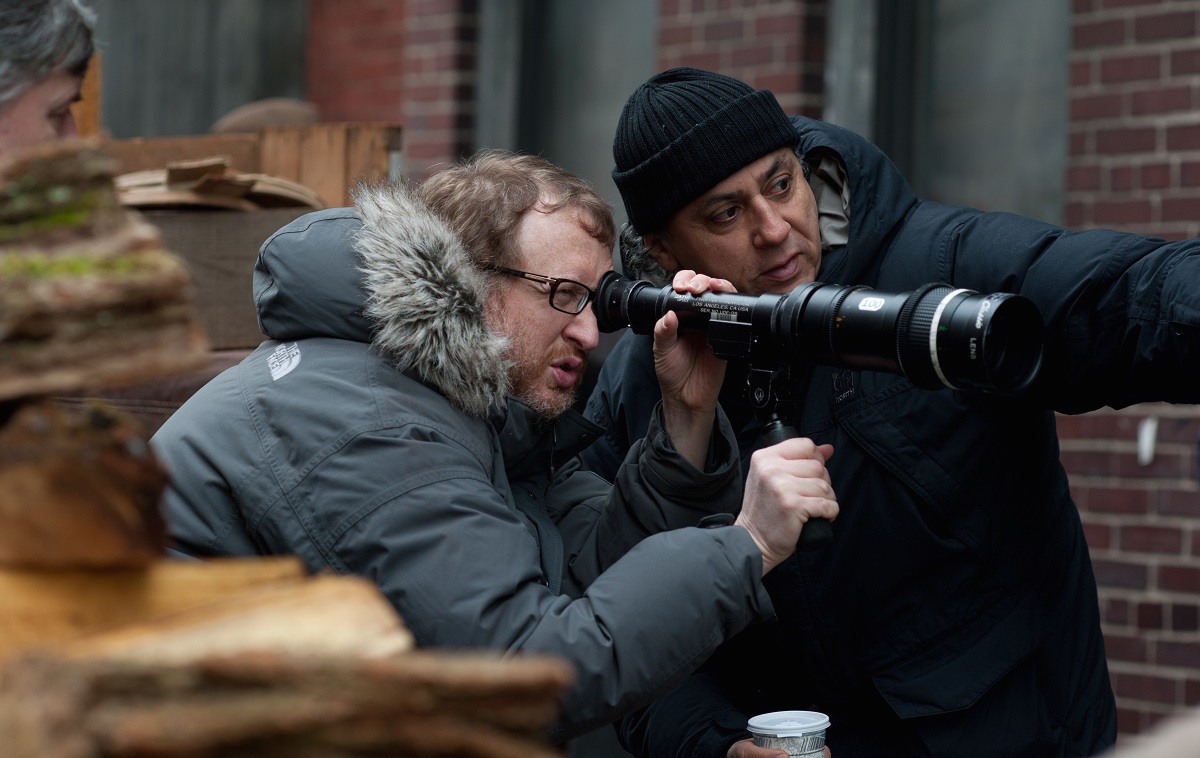This morning, the New York Film Festival announced its full lineup, adding titles like Barry Jenkins’ “Moonlight,” Kenneth Lonergan’s “Manchester by the Sea,” and Jim Jarmusch’s “Paterson” to its slate, which already includes Ava Duvernay’s documentary “The 13th,” and Mike Mills’ “20th Century Women,” as well as this year’s Closing Night selection “The Lost City Of Z.” It’s the highly anticipated new film from James Gray, and to celebrate the picture’s debut, The Film Society Of Lincoln Center has unveiled a never-before-released archival talk from 2014 with Gray discussing his then current “The Immigrant” starring Joaquin Phoenix, Marion Cotillard and Jeremy Renner.
READ MORE: 5o Films We Hope To See At The 2016 Fall Festivals
Gray is an extremely entertaining raconteur, and he regaled the audience at the talk with plenty of stories about “The Immigrant.” He discussed many topics, including the crime dramas he is known for (“I may return to [the genre]”) and amusing anecdotes about friends like Paul Thomas Anderson (who loved working with Phoenix, an actor who generally gives Gray a hard time) and David Fincher (Gray told his cinematographer Darius Khondji to use no pure blacks in the picture: “All the things Fincher would have me lynched for”).
But the filmmaker spent a lot of time discussing “Ad Astra,” his upcoming sci-fi film that is set to begin production in early 2017. While Gray has mentioned “Ad Astra” for years now, he’s generally talked around the plot and has otherwise offered few details. But during this talk, he was much more forthcoming.
“I had read about the people that had developed the [atomic] bomb, that in doing the atom splitting for the first time, there was a 90% chance that all known matter in the universe would not be destroyed,” he explained about the inspiration for the film. “And they did the experiment anyhow and split the atom and I always found that extremely alarming; that they did the experiment with the 10% chance that [everything] would be destroyed.”
The director then revealed how the film’s plot had been influenced by this chilling scenario. “So I started to think about a very ‘Hearts Of Darkness’/’Apocalypse Now‘ thing, that somebody is going to do an experiment like that because they have nothing to lose,” he explained. “And we have to send somebody to destroy him. So that is basically [what the film] is, and the thing that’s in the middle of it of course is the terrible cabin fever that begins to set in.”
“I had read also about trips to Mars, where they were purposefully trying to recruit people with Asperger’s Syndrome,” he continued. “Because idiots like me… would not handle not having to interact with people for a year and a half long trip. To wrap it all, I had read all this [stuff] and I thought it would be interesting to mix a [Joseph] Conrad-type idea with something that goes terribly wrong. And they choose people that they think are appropriately emotionally repressed [to embark on the mission but] they’re not repressed enough and this craziness that happens on the way.”
So that’s the broad strokes of the plot of “Ad Astra,” with Gray calling the film “science fact,” rather than science fiction because his conception is different from most sci-fi films. “The way I wanted to shoot it was like Apollo footage, incredibly realistic,” he said. “But not like ‘Gravity.’ You know that documentary ‘For All Mankind’? The footage is remarkable: they shot all this 16mm footage and [I want to] do it like that. Very science based. Almost ‘science fact,’ but 50 years in the future.”
Don’t look for the influence of Andrei Tarkovsky either, or at least not “Solaris,” which Gray doesn’t love (“It doesn’t hold up,” though he calls “Andrei Rublev” a masterpiece and chided himself for daring to speak against Tarkovsky).
Gray said he always wanted to buck sci-fi trends. “[I want to] fight the temptation —another mistake all sci-fi films make— of a dystopian future,” he said. “The idea of, ‘The future is really bad, everything sucks! which I think is a fairly boring dramatic idea. Because the truth of it is that the path of human development has been fairly good over the past 1,000 years. We have blips like Hitler…but generally we’re not living in black plague land. I think it’s important to promote a future that is both —dystopian and in some ways considerably better than the future we have now.”
His favorite sci-fi films? “2001: A Space Odyssey,” “Blade Runner” and “Metropolis.” Of course, this skims the surface of the nearly 50-minute conversation that tracks most of Gray’s career and dives deeply into the making of “The Immigrant.” So sit back and listen below.





